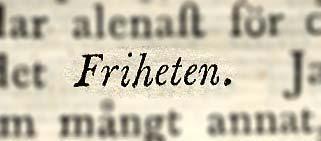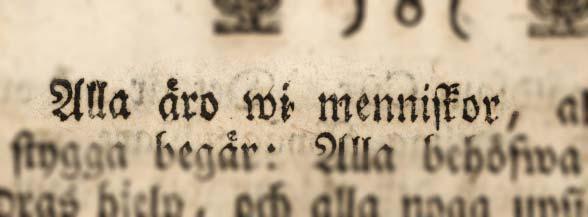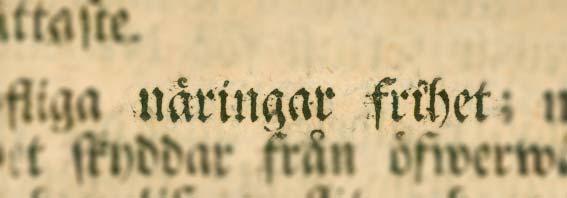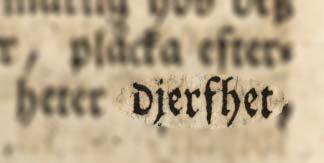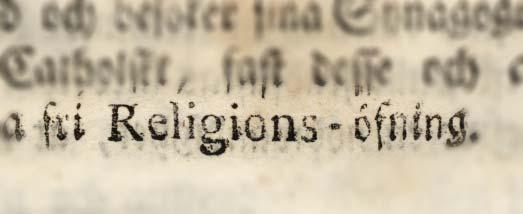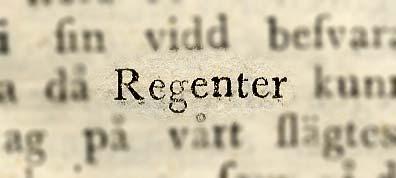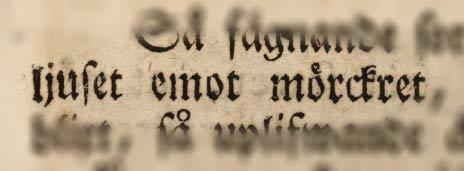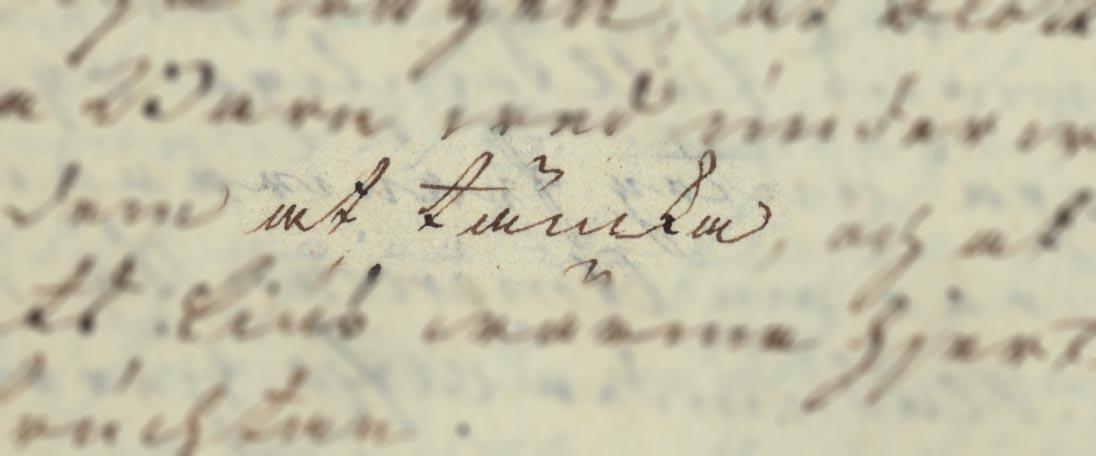About human rights
Natural rights
The first right of nature is that people shall be able to live, dwell and reside on earth, maintain themselves and their families, marry and multiply.
Human rights
In an age when great new discoveries are made in every realm of nature, when sciences are developed to an unusual degree, when intellectual and literary talents are promoted and art produces virtual marvels compared to former times, it is disconcerting that the most valuable of all, the rights of mankind, are neglected.
Natural equality
Nature makes them exactly the same as us at birth: their body posture when they at first lie in their cradle is identical with ours, their souls are just as rational as those of other people, which makes it obvious that nature’s Lord has also accorded them the same rights that other people enjoy.
Labour is the poor man’s merchandise
The servants are indeed as much Swedish subjects as we their masters. Their service or labour is not to be regarded as anything other than commodities that they offer for sale to the benefit of themselves and the public; for it is precisely for that reason that the masters are able to increase their commodities. Among us every vendor enjoys the freedom to dispose of his commodities, if not to everyone then at least to a number of persons, whichsoever he prefers to do business with. He is also free to set a price on the commodity himself and to reach agreement on that with the purchaser, except in the case of certain tariffs that are changed either annually or monthly, although I do not wish to comment here on the extent to which they are observed or are truly beneficial to the country. But that a servant,
firstly, cannot himself retain his commodity but is,
secondly, obliged to sell it to someone selected by blind chance and also,
thirdly, at a price set by the purchaser himself – for, be it noted, the servants have no share in the legislative power – that, in a free nation, with good reason, I call servitude.
The first requirement of nature
To support life is the first requirement of nature, and it will tolerate no limitation, as it extends far beyond the ties that have bound societies together. The leaders of societies cannot possess rights over life, nor exclude any means by which it may be sustained.
Is poverty criminal?
But with regard to their vices and debauchery, I fear that among a hundred masters there are more depraved ones than among as many servants, and that where, for example, one in ten of the depraved individuals among the servants incur penalties for their vices, barely one in a hundred of the masters, or at least those of higher rank and officials, will find themselves in that position. Is it not then a shame, is it not a manifest injustice, to deprive them of their freedom to improve themselves, merely because of the opportunities that will arise for them to commit offences in the process?
Protection for refugees
At a time when the inhabitants of Sweden, under the rule of a gentle and wise King, are almost the only people in Europe to enjoy perfect internal and external peace, we cannot but be profoundly moved by the terrible wars, horrendous events and persecutions that are now rapidly spreading in several parts of the world.
Could anything then be more well advised, more in accord with a righteous Christian love for humankind as a whole, more suited to the noble spirit of unity and liberty that befits a fortunate nation and to the true interest of our blessed but underpopulated fatherland than that we, at just such a juncture, should tenderly open our arms to all those unfortunates who already are or may in future be deprived of a sanctuary in their native countries and therefore yearn to move elsewhere in search of some protection from violence and oppression for themselves, for their wives and children, and for their property?
Memorial Regarding Freedom of Religion (1779), p. [3]. Translated by Peter C. Hogg.



